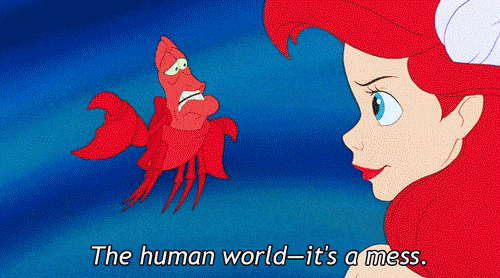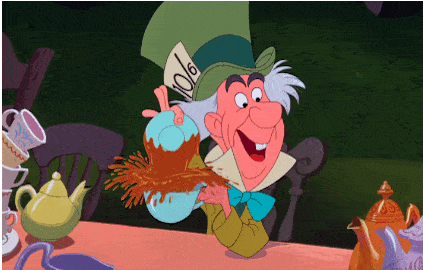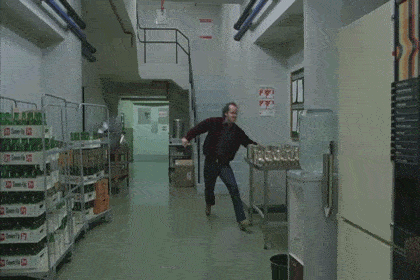Forget spring cleaning — it’s time to embrace clutter and stop trying to organize everything from your books to your shoes, says science.
Several recent studies have come out in support of messiness: apparently, organization is a “comfort blanket” humans hide behind while searching for order in a naturally chaotic world.

“The universe itself is dead-set against out long-term efforts to bring order to the chaos in our lives,” says physicist Adam Frank, “That’s because the universe loves chaos.”
Despite social norms implying that disorganized people are scruffy or just plain lazy, some say the messy ones among us have in fact “embraced” the world’s chaos and stopped fighting it.

So next time someone says your house/car/room is disgusting, just tell them you “won’t allow your life to be dictated by propriety and convention”. You win.
But mess, according to researchers Eric Abrahamson and David H. Freedman, doesn’t necessarily mean there’s no order — these guys firmly believe in organized chaos.
“On a messy desk, the more important, urgent work tends to stay close by and near the top of the clutter,” they say, “The safely ignorable stuff gets buried, which makes perfect sense.”

And Kathleen Vohs from the University of Minnesota thinks that messy people actually have one of the most highly desirable traits around — creativity.
“Disorderly environments seem to inspire breaking free of tradition, which can produce insights. Orderly environments, in contrast, encourage convention and playing it safe,” she says.

And you mucky pups are in good company; other famous mess-makers include Roald Dahl, Albert Einstein, J. K. Rowling, and Alan Turing.
Messy people are said to be more adventurous, spontaneous, and creative — all because they don’t spend time getting stressed about cleaning.

One study even found that in the professional world, the CEOs and company heads were all messy individuals. These people were high achievers because they understand the power of mess.
“If you don’t inject a little disorder in your life you most likely will miss out on the serendipity of an unplanned success,” says author Kate Lorenz.
So there you have it. Say yes to the mess.


